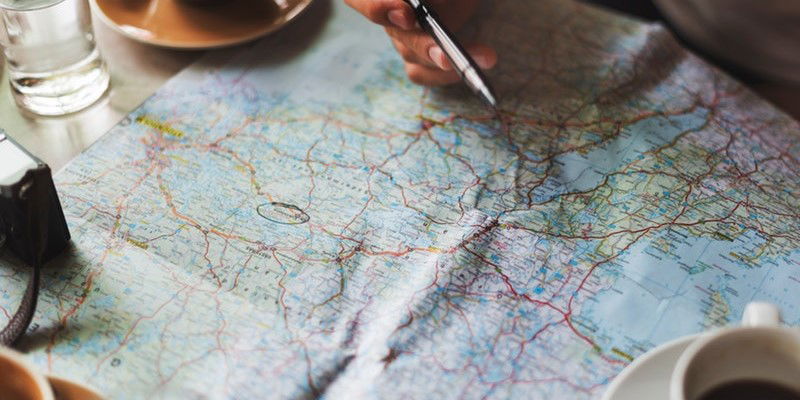Self-forgiveness is an essential component of personal growth and healing. When we hold onto guilt and resentment towards ourselves, it can hinder our ability to move forward and live a fulfilling life. Luckily, there are many techniques and resources available to help us foster self-forgiveness and release ourselves from the burden of our past mistakes. In this article, we will explore 25 powerful techniques and books that can aid in the process of self-forgiveness.
1. Practice self-compassion: Treat yourself with the same kindness and understanding that you would offer to a friend in a similar situation. Remind yourself that everyone makes mistakes, and it is part of being human.
2. Acknowledge your feelings: Allow yourself to feel the emotions that come up when you think about the mistake you made. Avoiding or suppressing these feelings can prolong the process of self-forgiveness.
3. Write a forgiveness letter to yourself: Write a letter addressing yourself with kindness and understanding, expressing forgiveness for the mistake you made. Read the letter out loud to yourself as a way to affirm your self-forgiveness.
4. Practice mindfulness: Mindfulness techniques such as meditation and deep breathing can help you to stay present and let go of negative thoughts and emotions.
5. Seek therapy: A therapist can provide guidance and support as you navigate the process of self-forgiveness. They can help you to explore the root causes of your guilt and find healthy ways to move forward.
6. Use affirmations: Repeat positive affirmations to yourself, such as “I forgive myself for my mistakes” and “I am deserving of love and forgiveness.”
7. Practice gratitude: Focus on the things in your life that you are grateful for, rather than dwelling on past mistakes. Gratitude can help to shift your perspective and cultivate feelings of forgiveness towards yourself.
8. Practice self-care: Taking care of your physical, emotional, and mental well-being is essential for self-forgiveness. Engage in activities that make you feel happy and relaxed, such as exercise, spending time in nature, or practicing self-care routines.
9. Create a forgiveness ritual: Light a candle, say a prayer, or perform a ritual that symbolizes your intention to forgive yourself for past mistakes.
10. Seek forgiveness from others: If your mistake has impacted someone else, consider reaching out to them to apologize and seek forgiveness. This can help to heal your relationship and facilitate the process of self-forgiveness.
11. Learn from your mistakes: Reflect on the lessons you have learned from your past mistakes and use them as opportunities for growth and self-improvement.
12. Practice self-reflection: Take time to reflect on your values, beliefs, and personal growth goals. This can help you to better understand yourself and cultivate forgiveness towards yourself.
13. Cultivate self-acceptance: Embrace all aspects of yourself, including your flaws and imperfections. Accepting yourself fully can help you to move towards self-forgiveness.
14. Practice forgiveness towards others: By practicing forgiveness towards others, you can cultivate a mindset of compassion and understanding that can extend to yourself.
15. Embrace vulnerability: Allow yourself to be vulnerable and open to the process of self-forgiveness. Vulnerability is a key component of healing and growth.
16. Practice self-acceptance: Accept yourself fully, flaws and all. Embrace your imperfections as part of what makes you unique and worthy of forgiveness.
17. Challenge negative self-talk: Notice when you engage in negative self-talk or self-criticism and challenge these thoughts with positive affirmations and self-compassion.
18. Surround yourself with positive influences: Spend time with people who support and uplift you, and avoid toxic relationships that can hinder your self-forgiveness journey.
19. Practice forgiveness meditation: Engage in meditation practices that focus on forgiveness and compassion towards yourself and others. Guided meditation apps and videos can be helpful resources for this practice.
20. Read books on self-forgiveness: There are many books available that explore the topic of self-forgiveness and offer practical techniques for cultivating forgiveness towards oneself. Some recommended books include “Radical Forgiveness” by Colin Tipping, “Forgiveness: How to Make Peace with Your Past and Get on with Your Life” by Sidney B. Simon and Suzanne Simon, and “The Forgiveness Workbook: A Step by Step guide to Resolving Anger, Building Empathy, and Creating a Pathway to Forgiveness” by Eileen Borris-Dunchunstang and Pat Casello-Maddox.
21. Engage in forgiveness workshops or retreats: Joining a forgiveness workshop or retreat can provide a supportive environment for exploring self-forgiveness and connecting with others on a similar journey.
22. Write in a forgiveness journal: Keep a journal dedicated to writing about your forgiveness journey, including reflections, insights, and progress towards self-forgiveness.
23. Practice forgiveness rituals: Create rituals or ceremonies that symbolize your intention to forgive yourself and let go of past mistakes. Lighting a candle, writing a forgiveness letter, or engaging in a forgiveness meditation are examples of forgiveness rituals.
24. Seek support from a trusted friend or mentor: Sharing your feelings and experiences with someone you trust can provide valuable insights and support as you navigate the process of self-forgiveness.
25. Be patient and compassionate with yourself: Remember that self-forgiveness is a gradual process that takes time and effort. Be patient with yourself, and practice self-compassion as you work towards forgiving yourself for past mistakes.
In conclusion, fostering self-forgiveness is a powerful and transformative process that can lead to healing, growth, and a deeper sense of self-acceptance. By incorporating these techniques and resources into your life, you can cultivate forgiveness towards yourself and release the burden of guilt and resentment. Remember that self-forgiveness is a journey, and every step you take towards forgiving yourself is a step towards greater peace and well-being.



